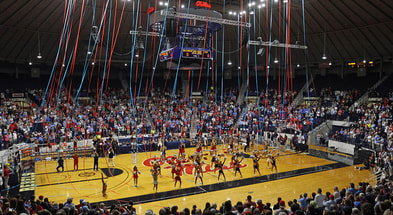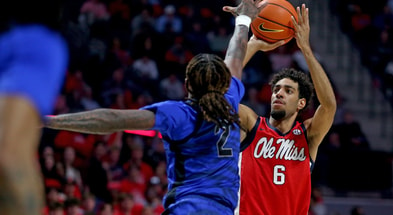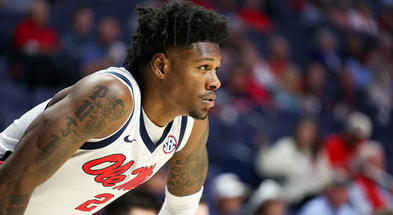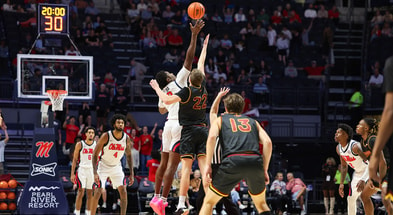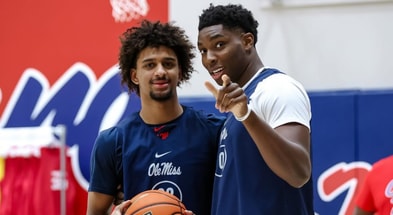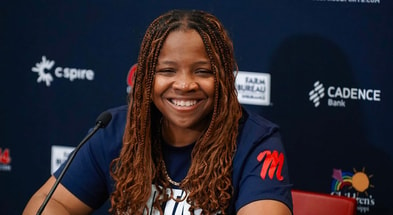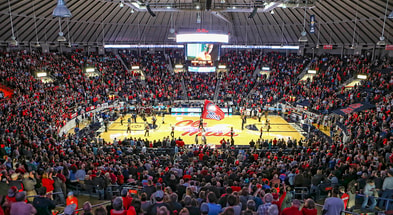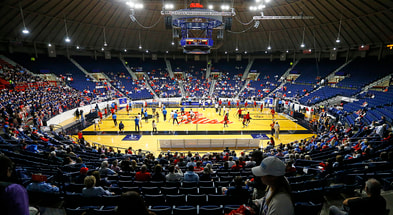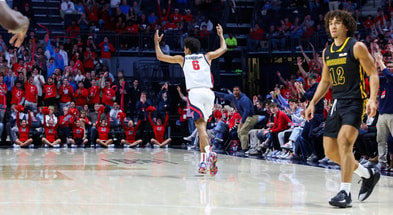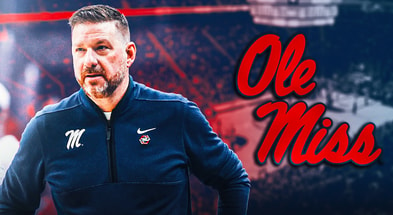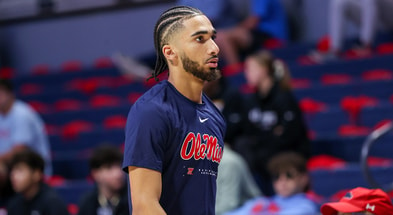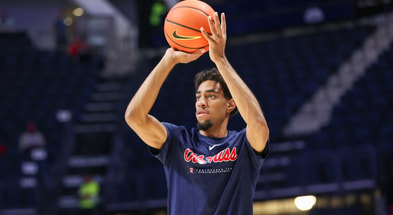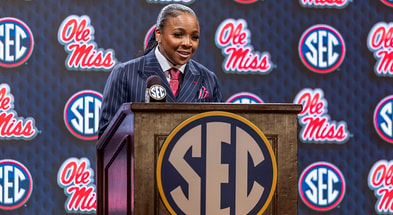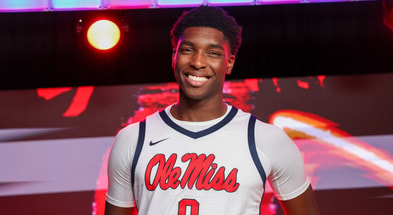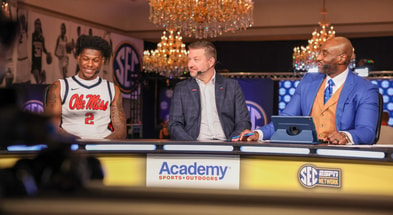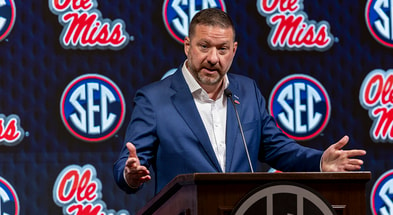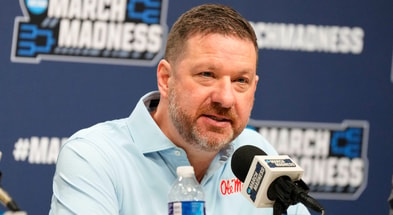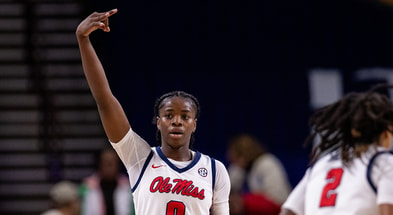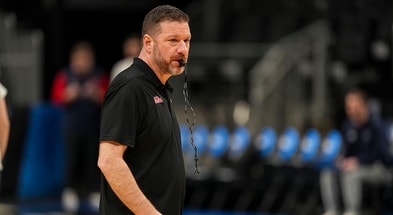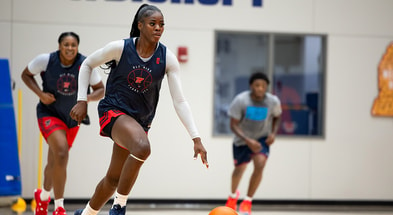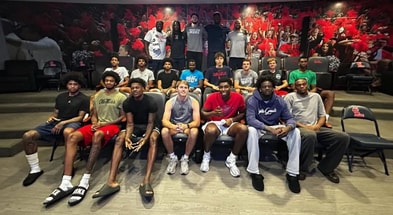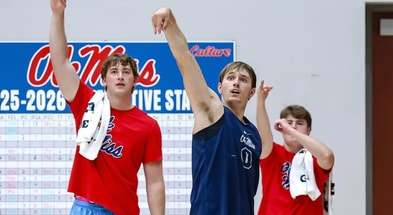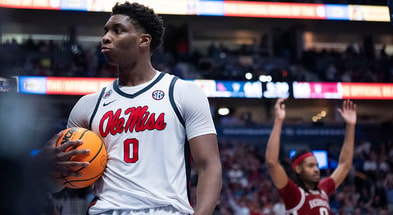Chris Beard on NCAA Rule Changes: ‘Anything that can help the right team win a close game’
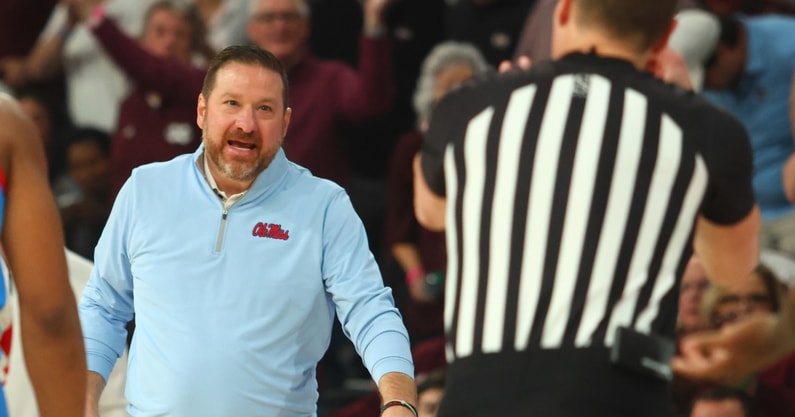
The NCAA last month approved multiple major rule changes to men’s college basketball.
Teams can now challenge to review out-of-bounds calls and goaltending or basket interference. The NCAA also modified the rule on continuous motion during shot attempts.
Further, the regular season will expand to a 32-game limit starting in 2026-27, giving teams the option to schedule more non-conference games.
“What we do is we make sure we educate ourselves fully. No confusion,” third-year Ole Miss head coach Chris Beard said. “We talk about that as a coaching staff often when we’re getting video. The SEC Commissioner of Officials always comes out to each campus in the summer. We always let him kind of present the stuff and then we’ll follow up.”
Teams must have a timeout for a coach’s challenge and replay review, much like college football.
A successful review allows for an additional video-review challenge for the remainder of the game, including overtime. Unsuccessful attempts result in the loss of ability to challenge any additional calls.
Coach challenges will not impact the officials’ use of instant replay for timing mistakes, scoring errors, shot clock violations, 2-point vs. 3-point field goal attempts, flagrant fouls, etc.
“It’ll be interesting. Certainly from a coaching standpoint you don’t want to lose that challenge. So, you start thinking about when’s the right time to use it, but also if there’s a glaring call you know you’re right on, you’ll get the challenge back,” Beard said. “There’s going to be a lot of tense college basketball staff members that are holding that iPad in their hands this year.
“It’s not like we have time to have a full conversation about it. It’s going to be either [thumbs up or thumbs down] and it’s going to have to be quickly. But that should be interesting for the game.”
Beard’s Rebels won 24 games last season and reached the NCAA Tournament for the 10th time in school history. They matched the program’s greatest-ever single-season accomplishment by reaching the Sweet 16.
Top 10
- 1New
Most-watched teams
Tracking Top 10 through Week 12
- 2
Jamal Mashburn
Calls out Kentucky
- 3Hot
NSD Predictions
Calling the shot on top recruits
- 4Trending
Ed Orgeron
An LSU return?
- 5
Kalen DeBoer
Assessing Penn State threat
Get the Daily On3 Newsletter in your inbox every morning
By clicking "Subscribe to Newsletter", I agree to On3's Privacy Notice, Terms, and use of my personal information described therein.
“Anything that can impact a close game being won by the right team.”
RELATED: ‘No red flags’: What Chris Beard had to say about the delay in Ilias Kamardine’s arrival
Officials can now initiate video reviews on basket interference/goaltending and restricted arc plays in the final two minutes of regulation and in overtime.
However, officials can only conduct video review on out-of-bounds calls if a coach first issues a challenge. Other approved enhancements include new points of emphasis for officials to address delay-of-game tactics, limiting time at the review monitor, improving game efficiency and reducing physicality.
Offensive players can now pivot or complete their step and finish a field goal attempt — even after stopping their dribble and absorbing contact. Officials in previous seasons awarded the basket only if the a player was ruled to have been fouled in the act of shooting.
The NCAA Men’s Basketball Rules Committee in May also recommended the creation of a joint task force to gather feedback from conferences on potentially moving from halves to quarters. Any potential changes to the game’s general format, though, won’t come until the next rules-change year.
Lastly, officials now have the option to call a Flagrant 1 foul and eject a player who makes contact with another player’s groin area, formerly a common foul or Flagrant 2.
Officials will now penalize players for basket interference if they use the rim to gain an advantage. In a final change, crews can now rely on the remaining shot clock if one becomes inoperable—in previous seasons, they had to turn both off.
